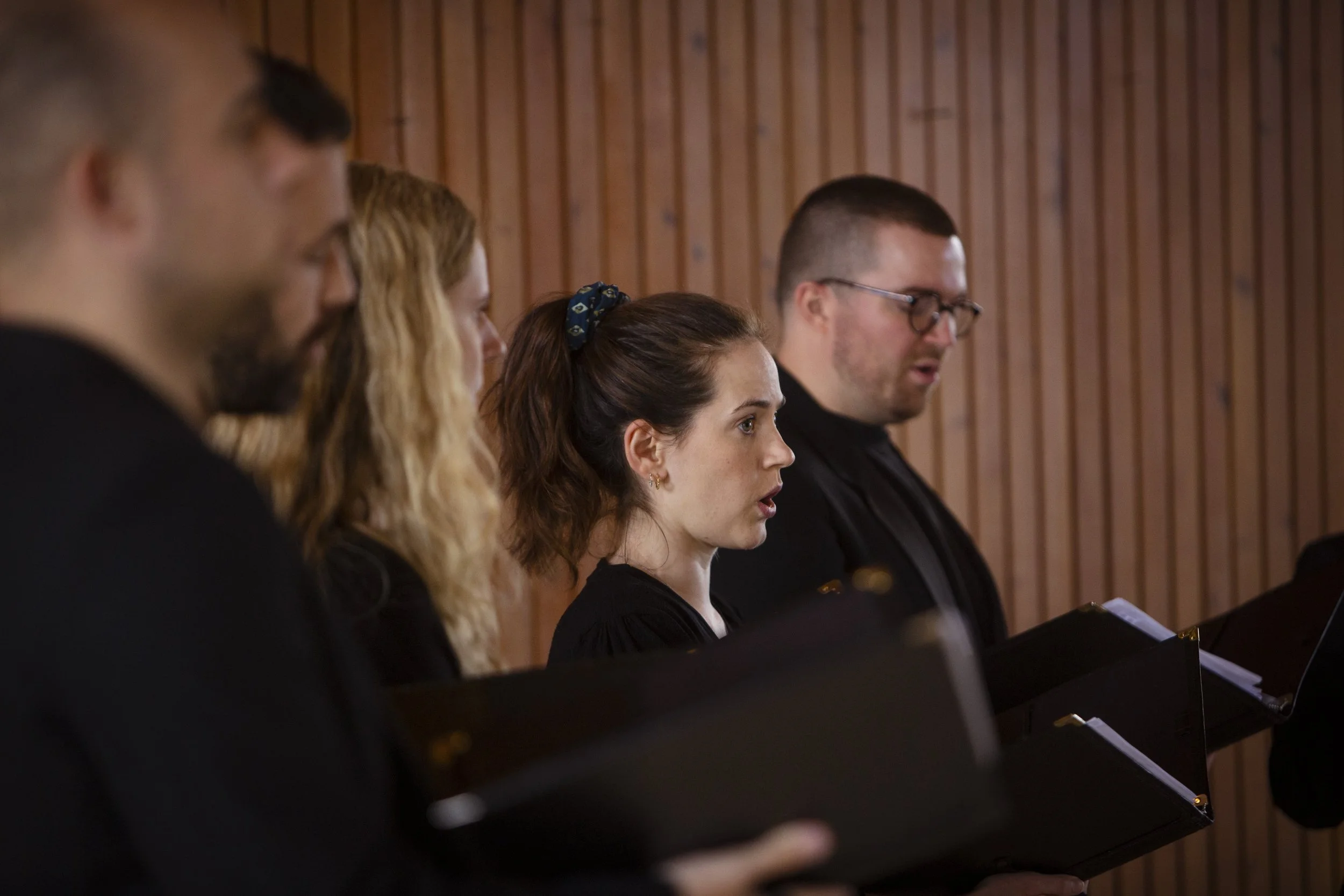Fiona Fraser reflects on our two concerts at the Lammermuir Festival
A few weeks ago, we spent a great couple of days performing at the Lammermuir Festival in East Lothian. This was particularly exciting for me, as I always love the opportunity to get back home to Scotland, and to see my family if at all possible!
© Stuart Armitt
For our first concert, we were at Our Lady of Loretto and St Michael’s Church in Musselburgh to perform our Vox Machina programme for choir and live electronics. This programme included Ceasing by Joe Bates, which we premiered at the Barbican Centre’s Sound Unbound Festival in 2019, as well as the UK premiere of Jonathan Harvey’s Stabat Mater. Alongside these pieces for voices and electronics, we also sang Rhiannon Randle’s beautiful O nata lux, Palestrina’s double choir Stabat Mater and Josquin des Prez’ Inviolata.
“hugely impressive and wonderfully performed”
This is such an exciting programme to perform, as the electronics are constantly processing and manipulating the sounds made by the singers. The technology reacts in real time, and so no two performances of these pieces will ever be quite the same. The sound world created is striking, but the more personal side of this programme is also very interesting. As part of his piece, Joe Bates collected stories and memories about loss from the singers, and these snippets of text were then worked into his composition. Although it is quite an unusual experience to revisit and perform words you wrote years ago, having them as such an integral part of the composition also feels like a fitting way to preserve them.
The world premiere performance of Ceasing by Joe Bates at St Bartholomew-the-Great, London in May 2019.
Our second concert was a total contrast, celebrating the works of William Byrd and his contemporaries. In the morning, we drove out of Haddington and into the countryside near Garvald to Nunraw Abbey. The only building you can see for quite a few miles, the Abbey sits at the foot of the Lammermuir Hills, and is a fully working monastery. The monks living there were very welcoming, and it felt special to be allowed access to perform there.
© Stuart Armitt
We sang in the refectory, its beautiful high vaulted ceilings and atmosphere of total peace and quiet making it the perfect place to explore the spirituality, and torment, of Byrd’s music without distraction. I particularly enjoyed singing the De Monte Super flumina Babylonis alongside Byrd’s answering Quomodo cantabimus. Thirty years after visiting England, De Monte set the first three verses of the song of captivity, psalm 137, ‘by the waters of Babylon we sat down and wept when we remembered thee, O Zion’. He then sent it to Byrd, a devout Catholic living in post-Reformation England, who responded with a setting of the next four verses of the same psalm, also in eight parts and the same key. However, although Super flumina feels very melancholic, Byrd’s setting of ‘how shall we sing the Lord’s song in a strange land’ has a quiet defiance in his plea to not forget Jerusalem (i.e. Rome). It felt very poignant to sing these words in the beautiful setting of Nunraw Abbey.
“expert interlocking of exquisite voices in a sound that takes us beyond our everyday selves”


